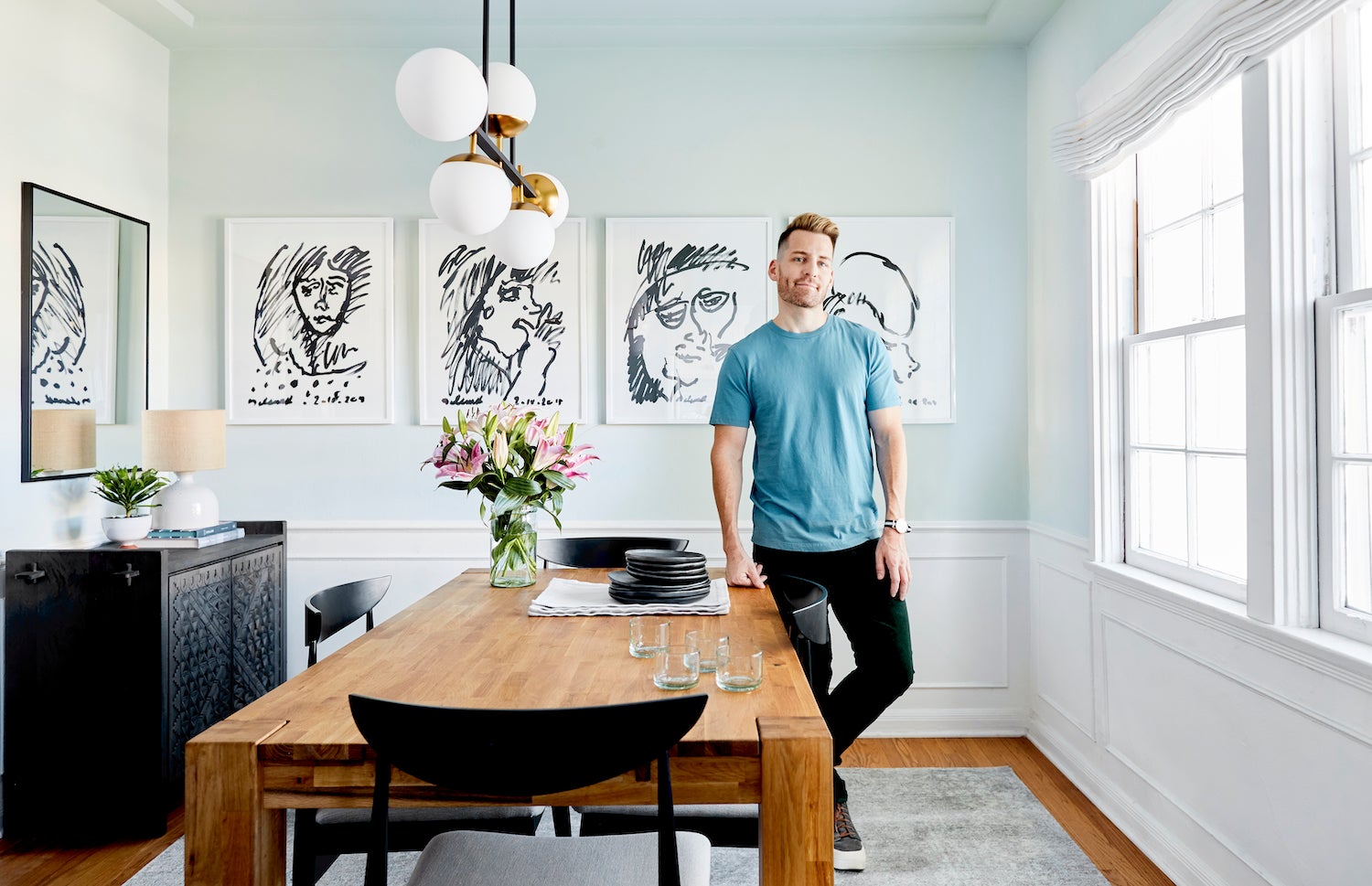It was 2020 and from the outside—global pandemic aside—it looked like interior designer Orlando Soria was riding high. His HGTV show had been picked up for another round of episodes, and his hard-earned Instagram following was setting him up for brand partnerships left and right. There was just one problem: Soria was quickly going broke.
“During [the early days of] COVID I was very publicly supportive of things that would keep us all safe, and I had a lot of people being like, Oh you’re just a Hollywood liberal elite that doesn’t really understand what’s going on in the economy. Meanwhile, I was penniless,” he tells host Dennis Scully on the latest episode of The Business of Home Podcast.
A little background, and a little math: It’s generally understood in the home industry that the reasons to host a home makeover show are more about marketing yourself than making money. When you run the numbers, that becomes starkly clear. Soria says he was paid $40,000 for a season of his show, Build Me Up, which took ten months to film. After agent fees and taxes, he says he took home $17,500, which translates to $11 an hour—technically less than California’s minimum wage.
It should also be noted that filming a renovation show is generally not something you can do as a side project while you work for “regular” clients. The hours are long, the production budgets are low, the labor is intense and it’s a lot less glamorous than it looks. At the time, Soria saw it as a necessary hustle, but over time he’s come to view the experience differently.
“I spent two years feeling a lot of shame and embarrassment, and then I came to another conclusion: I was in a very exploitative situation,” he says. “My anger is not really anger for myself. It’s anger at what is going on in this country with people at the high end—CEOs, the one percent making a ton of money off the labor of people like me. And I can’t even believe I’m saying that as someone with a television show … I have a problem with the notion that if you can get somebody to do something for a very low rate, as a wealthy company, that's OK to do.”
Generally speaking, the payoff at the end of a design TV show is a boost in profile. As you get more famous, brands tap you for lucrative partnerships. It certainly can work—but in Soria’s case, it didn’t. His show was relegated to a midnight time slot after just three episodes, limiting its reach. The de facto cancellation made the arrangement all the more absurd for him. He had been working long hours for low wages in order to maybe get a marketing boost so he could hypothetically get paid by someone else.
Making matters worse, he wrapped up on the show just as the pandemic put the brakes on influencer spending. Even when it picked up again in 2021, he found himself left high and dry by brands that had promised to pay on time but came in months late, if they paid at all, leaving him strapped for cash.
This perfect storm of challenges took a toll on Soria; last week, he penned a lengthy blog post chronicling the mental and physical effects the period had on him. But it also took away his fear of speaking out about what really goes on behind the scenes of design TV, and the perilous nature of the influencer economy.
And despite two terrible, horrible, no-good, very bad years, Soria is feeling relieved to have all this out in the open, and is looking forward to the future. There’s a book in the works, and he’s interested in finding ways he can connect with an audience online and earn a living without relying (as much) on large corporations. It probably goes without saying, but he’s not headed back to HGTV any time soon.
“I think sometimes you need to burn the bridges you no longer want to go over,” he says. “While I have only goodwill towards the people I met at HGTV, I’ve realized that for now, that’s not an interest of mine. I think I could make more money on YouTube.”
Listen to the show below. If you like what you hear, subscribe on Apple Podcasts or Spotify. This episode was sponsored by Juniper Market.
Homepage photo: Courtesy of Orlando Soria





























